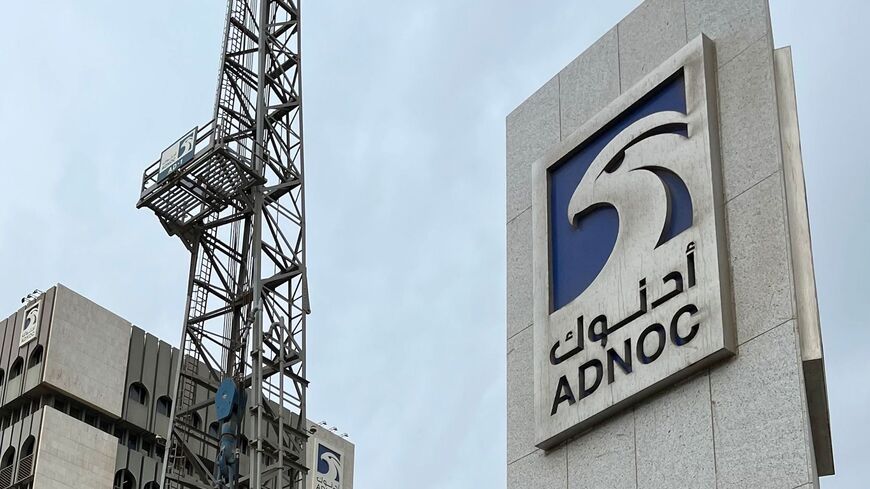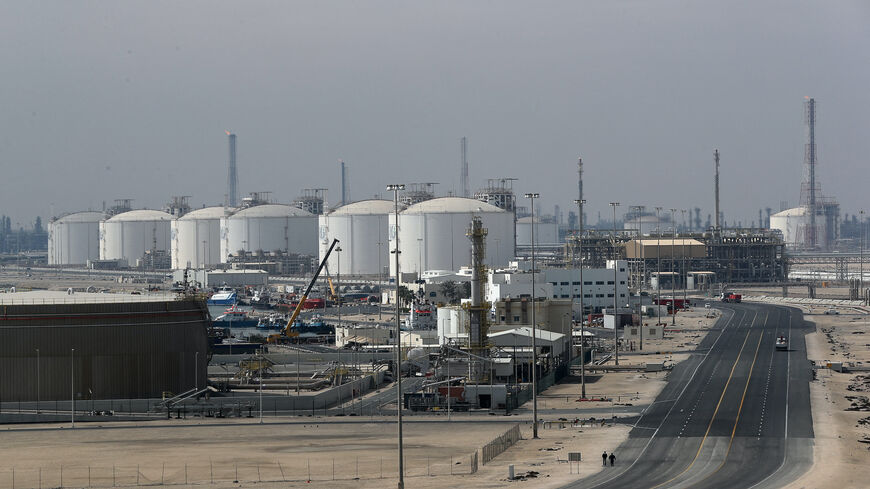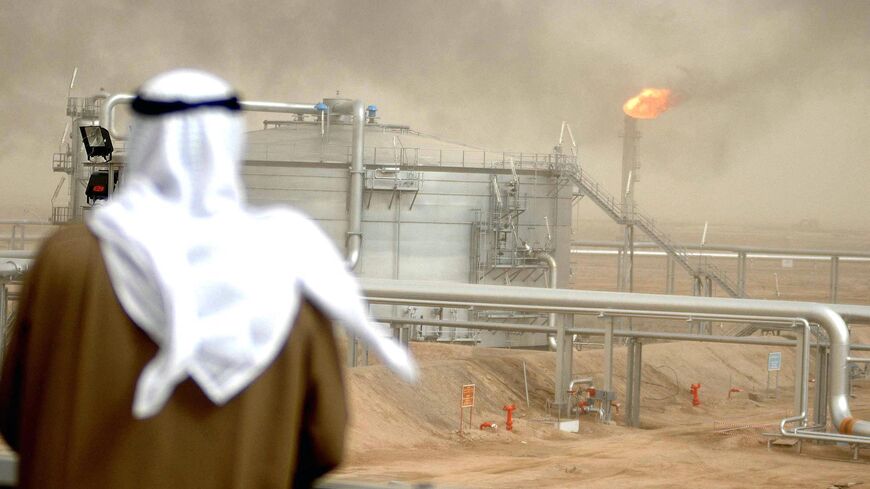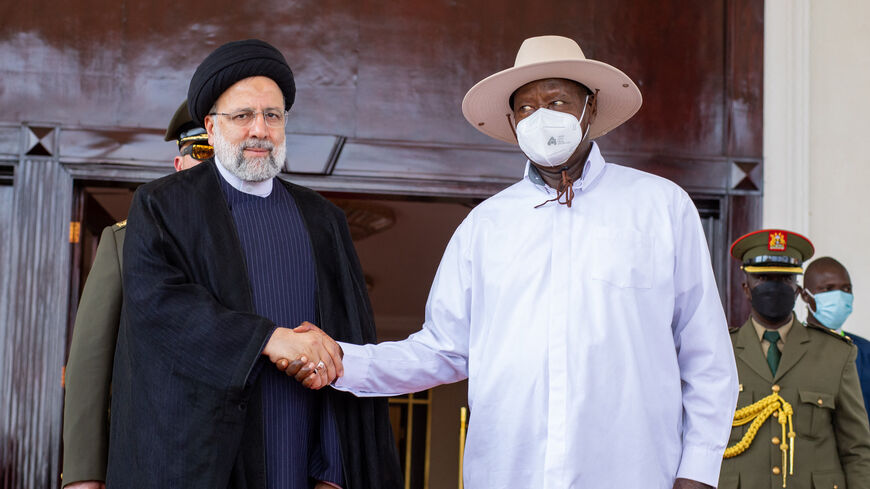International business development is next challenge for UAE's ADNOC
Al-Monitor Pro Members
Gerald Kepes
President, Competitive Energy Strategies, LLC
Aug. 7, 2023
The Abu Dhabi National Oil Company (ADNOC) has a range of corporate objectives, including oil production growth, self-sufficiency in natural gas, providing petroleum and natural gas products, comprehensive decarbonization of the entire production portfolio, and a net zero emissions target by 2045. At the same time, the national oil company (NOC) is the leading institution spearheading Abu Dhabi’s aspirations and it is a critical financier of the entire national program.
Commercially, ADNOC is an asset management company with an enhanced focus on partner management. It is currently engaged in a program of consolidation within the United Arab Emirates (UAE) and its existing international asset holdings, has recently entered Eastern Mediterranean and Central Asian upstream gas arenas and stepped up efforts to acquire petrochemicals and energy-efficient materials businesses outside the Middle East. Corporate acquisitions and organic growth in new markets are usually challenging commercially. International business development is ADNOC’s next challenge.
Autonomy
- ADNOC has a moderate level of operational autonomy to independently choose investment partners, projects to invest in and appropriate service sector partners.
- ADNOC and its portfolio of partners are increasing capability. It is highly dependent on selected international oil companies (IOCs), utilizing asset leaders (BP, onshore Bab field, ExxonMobil, offshore Upper Zakum reservoir); service companies (technology access); financial advisors, investment bankers and consultants. Executive management is a very small cadre of decision-makers highly influenced by outside advisors.
- ADNOC’s strategic autonomy is quite limited, influencing operational autonomy; partner selection is highly influenced by geopolitics. As the government’s geopolitical interests expand or diversify, so do ADNOC’s partnerships. Choosing US partners or now, Chinese partners (and others) is a top-down governmental decision. Decisions for ADNOC to invest internationally come from the government, whether to consolidate other Abu Dhabi Inc. assets (from Mubadala or others), enter the East Med gas play, Central Asia gas or acquire petrochemical and energy-efficient materials manufacturing companies in Europe, South America or elsewhere.
- Driven by the government of Abu Dhabi, ADNOC has been pursuing a consolidation project since new executive management and directional changes in 2016. Abu Dhabi Inc.’s multiple companies had/have investments in energy and even upstream, potentially competing with each other.
- TAQA (Abu Dhabi National Energy Company focused on power and water) came to own upstream assets in the UK North Sea and Canada (still does).
- Mubadala came to own upstream assets in Thailand, Malaysia, Indonesia, Qatar, Oman, Egypt and Israel (still does), equity in Austrian OMV which has upstream assets in Abu Dhabi (OMV stake is now owned by ADNOC) and other energy assets in petrochemicals companies Borouge and Borealis (in the process of being merged into a single entity owned by ADNOC and OMV). Mubadala owns 63% of CEPSA (Spanish energy company) which it consolidated from IPIC (a former Abu Dhabi Inc. entity now dissolved). CEPSA had upstream investments in Abu Dhabi prior to selling to TotalEnergies earlier this year.
- MASDAR, a subsidiary of Mubadala, was created to supply clean energy. In 2021, ADNOC and TAQA joined Mubadala’s ownership of MASDAR with slightly different holdings in two separate MASDAR entities, renewable energy and green hydrogen (ADNOC is the lead in the latter).
- Consolidation continues, is based on commercial logic, is a major item on ADNOC’s agenda, and was placed there by the Abu Dhabi government.
- Lest there be any confusion, ADNOC’s CEO, Dr. Sultan Ahmed Al Jaber, is also member of the UAE Federal Cabinet, Ministry of Industry and Advanced Technology, Chairman of MASDAR and the UAE’s special envoy for climate.
ADNOC strategy and priorities
- In most respects, ADNOC is a classic asset management company, inward-looking, focused on scale efficiencies, technical excellence, minimizing risks and maximizing financial returns. This stands in contrast to business development companies, outward-looking, risk-taking, focused on asset growth, new entry, partnering and transactional skills.
- ADNOC’s version of the classic asset management company has some distinct differences. Management of much of the technical risk (which many NOCs struggle with) is outsourced to foreign operators (as asset leaders or wholesale operators). Foreign company partners have a long history with ADNOC, and of course heritage ADNOC was born of foreign operators.
- The number of foreign companies partnered with ADNOC has roughly doubled since 2016. Partnerships with different operators, asset leaders and equity shareholders are designed around different asset challenges, resource types and risks, and play a role in every one of ADNOC’s priorities. Not confined to existing reservoirs, exploration and unconventional resources, ADNOC’s partnerships include investments in downstream, midstream, hydrogen, petrochemicals. Partnerships include other Abu Dhabi Inc. enterprises.
- ADNOC is a successful asset management company whose assets are its partnerships. So, what is it all for?
- The NOC’s apparent strategic objective is to attain the highest valued levels in the global energy business and be larger in 25 to 50 years than today. Priorities are:
- Expand crude oil production capacity to a sustainable 5 million b/d by 2027 (from 4 mb/d).
- Achieve national self-sufficiency in natural gas inclusive of sour gas development and exploitation of unconventional natural gas resources.
- Provide petroleum and natural gas products to the Abu Dhabi economy.
- Expand LNG program from 5.8 mtpa to 16.6 mtpa by 2028.
- Triple petrochemicals capacity via consolidation and acquisition and increase refining capacity by 60% by 2025 (includes international).
- Contribute to net zero emissions by 2045; decarbonize operations via CCUS, provide more natural gas for power generation, eliminate natural gas flaring, source 100% of onshore and offshore operations grid power from nuclear and solar energy.
- Expand green hydrogen and increase production of blue hydrogen (based on CCUS); create 1 million ton/year ammonia capacity by 2025 to transport hydrogen.
- Conduct full appraisal of Abu Dhabi’s natural resource potential, inclusive of nationwide 3-D seismic survey and expanded foreign company exploration licensing.
- Build a viable upstream natural gas business in the Eastern Mediterranean and Central Asia targeting regional and European markets.
- Acquire and consolidate international corporate assets with emphasis on integration into petrochemicals, high-technology polymer materials and other energy efficient materials.
- Consolidate Abu Dhabi Inc. asset holdings as per directives.
- Fully exploit initial public offerings of business units in its midstream and downstream areas to raise capital, share financial risk and achieve (and then increase) market valuation.
Scenario 1: This scenario is defined by a changing global business environment.
Abu Dhabi is pursuing a two-tiered foreign policy: a core security relationship with the US and UK, and purely transactional with everyone else. The more ADNOC pursues commercial relationships in regions where new relationships are being forged (Turkey, Middle East and North Africa) and the world where the “West” is at odds with Russia and more importantly China, risk and volatility is enhanced. There is potential sanctions risk should ADNOC engage with companies that the US disfavors. And there is a risk that Abu Dhabi’s geopolitical ambitions push ADNOC into investments where political aspirations impact realization of commercial value.
Scenario 2: The second scenario is based on the potential for instability in Abu Dhabi’s neighborhood.
ADNOC’s physical plant, resource base and business infrastructure are located in a geographically small area inside of the Straits of Hormuz. There is little geographic depth to the UAE’s national defenses. Winding down the war in Yemen, and even faster, UAE involvement, should reduce tensions with Iran. So should rapprochement between Saudi Arabia, Kuwait and Iran. There are, however, other entities interacting with Iran, whether the US, Russia or others. The UAE has greatly enhanced its military capabilities, but the risk of instability remains.
The most likely scenario is that ADNOC — and its portfolio of partnerships — will achieve the majority of its domestic business objectives. There are risks to commercial development of unconventional resources. And given the new technology and creation of new markets, some delays in CCUS and hydrogen/ammonia programs should be expected. To continue to be successful, ADNOC needs continued and growing access to markets, technology (and technology management skills) and technical asset management skills.
The less-recognized risk in this scenario is business development risk. Much of the business that ADNOC conducts is business with itself, long-term foreign operator partners, other Abu Dhabi Inc. entities or within the UAE, where Abu Dhabi is clearly the most powerful actor. Even dealing with OMV and jointly owned petrochemicals businesses, ADNOC is doing business with entities it partially owns. But what happens once the consolidation of assets and businesses inside and outside of the UAE fully runs its course, with all the captured growth in assets and efficiencies?
Assuming New Med Energy consolidates Mubadala’s gas assets offshore Israel and Egypt, the ADNOC joint venture must compete with well-positioned companies to grow. See also the acquisition of a stake in Azerbaijan's Absheron gas field. As progress of the Ratnagiri grassroots refinery in India has shown, organic growth in new markets can be very difficult. And corporate acquisitions in mature and emerging markets can be challenging commercially. Competition with other Abu Dhabi Inc. members was a challenge to ADNOC’s growth; consolidation should address that. Now, the challenge is international.
Gerald Kepes has more than 35 years of experience as a consultant and petroleum geologist in the global energy industry. Most recently, he was Vice President in Energy & Natural Resources for IHS Markit (now S&P Global), and previously, a PFC Energy Partner, where he established PFC’s global upstream consulting practice. He also held various positions with a US oil company in North Africa and the Middle East.
We're glad you're interested in this memo.
Memos are one of several features available only to PRO Expert members. Become a member to read the full memos and get access to all exclusive PRO content.

Already a Member? Sign in
The Middle East's Best Newsletters
Join over 50,000 readers who access our journalists dedicated newsletters, covering the top political, security, business and tech issues across the region each week.
Delivered straight to your inbox.
Free
What's included:
Free newsletters available:
- The Takeaway & Week in Review
- Middle East Minute (AM)
- Daily Briefing (PM)
- Business & Tech Briefing
- Security Briefing
- Gulf Briefing
- Israel Briefing
- Palestine Briefing
- Turkey Briefing
- Iraq Briefing
Premium Membership
Join the Middle East's most notable experts for premium memos, trend reports, live video Q&A, and intimate in-person events, each detailing exclusive insights on business and geopolitical trends shaping the region.
$25.00 / month
billed annually
$31.00 / month
billed monthly
What's included:
Memos - premium analytical writing: actionable insights on markets and geopolitics.
Live Video Q&A - Hear from our top journalists and regional experts.
Special Events - Intimate in-person events with business & political VIPs.
Trend Reports - Deep dive analysis on market updates.
We also offer team plans. Please send an email to pro.support@al-monitor.com and we'll onboard your team.
Already a Member? Sign in






